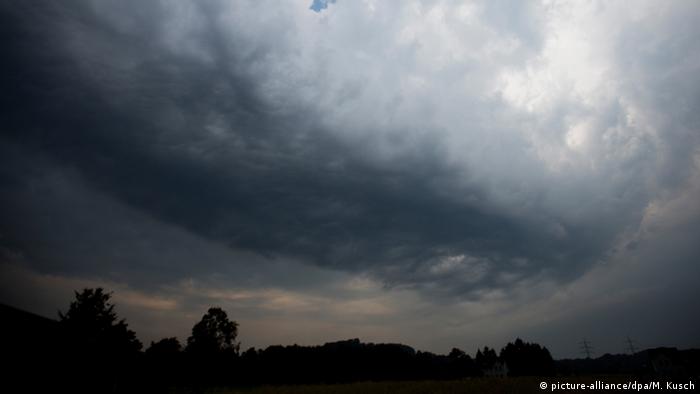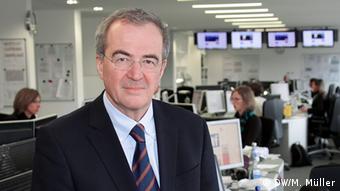Opinion: 2015 was a horrible year
GLOBAL CONFLICTS
Opinion: 2015 was a horrible year
The headlines that have dominated the news this year have made for unhappy reading. There's been no historic moment of change, but the world has definitely become messier, says DW's editor-in-chief Alexander Kudascheff.
2015 was a horrible and depressing year. It was a year of crises, of war and of catastrophes. It was a year of things starting to unravel, of shows of force and of monstrous terror from Paris to Beirut to Bamako. And it was a year of change, as well as political and societal upheaval. But has it marked the end of an era? A historic turning point?
In 1989, the American historian Francis Fukuyama predicted that history was ending: that humanity had reached the endpoint of its ecological evolution. He was certain, after the implosion of the main communist nations, that the liberal Western view of democracy would triumph.
A quarter of a century later, we can confidently say that this was the wrong prediction. In fact, the opposite is true. The world is in political disarray and on the move. And the center of this commotion is the Middle East.
The rise of IS is changing a whole region
It seems to be an almost undeniable truth that nothing can be resolved in the Middle East while the Palestine conflict is allowed to continue. It's clear that the question of the Palestinians' future needs to be solved, but this has all slipped well into the background this year.
Instead, the rapid rise of the so-called "Islamic State" has seen the Middle East unravel. Its unbounded brutality, its desire to take power in Syria and Iraq and its plan to build a caliphate according to the traditions of early Islam have radically transformed the region. The former power dynamic in the Middle East, which took form after the First World War, has disappeared 100 years later. The Kurds are now hoping again for their own state. The Syrians and Iraqis, in contrast, are worried that their countries will fall apart - or that they will change so much as to become unrecognisable.
And terrorism is starting to spread out from the Middle East. From Bangladesh to Mali, radical Islam is starting to shake up other countries and continents. The chain of crises goes from Asia to Africa and appears under various names: al-Qaeda, Boko Haram, Nusra Front or al-Shabab. And the explosive waves churned up by these crises even have an impact in Europe. Paris has been attacked by terrorists twice this year and, as a result, the European continent has lost a lot of its self-confidence. Despite all the refugees that countries such as Germany, Sweden and Austria have taken in, Europe is starting to retire into its own cocoon on this issue. It is putting up barriers and arguing amongst itself. The rise of right-wing populist parties is obvious and worrying. A political and social answer to the situation has not yet materialized.
Meanwhile, Europe has been dealing with war on its front doorstep, in Ukraine. At least it has been possible to stop the active fighting, thanks in part to combined German and French efforts. But that is all that's been possible. And, in the process, the foreign policy weakness of the Europeans has been revealed. They are not able to get things moving, they don't dare to take risks and they display little self-assurance. Angela Merkel's catchcry of "We can do this" with regard to refugee policy has been missing a supporting and equally decisive "Yes, we can" from the EU. Instead there has been doubt and fear. This is not good enough if you want to be an international player.
Russia back in the limelight
This year has shown us two other clear trends as well. First, Russia - despite all the sanctions against it - is back on the world stage. Vladimir Putin has rehabilitated the country with his brand of power politics. Secondly, Barack Obama's USA is focusing on itself again: in part because of the upcoming elections in the country, but mainly because of Obama's now pragmatic approach, in his final year at the helm. He knows that America can't solve all of the world's problems, and he knows it doesn't want to, either.
2015 didn't mark a turning point in history. But it has shown that crises around the world are starting to merge at a global level, and that it will be more difficult to find global answers. The consequence is that countries are pursuing nationalist political interests, using the United Nations as nothing more than a stage for showboating, and not for solutions. That is why 2015 was such a horrible, depressing and difficult year. And also because there is not much reason to hope that things will be any better in 2016, either.
Have something to say? Add your comments below. The thread stays open for 24 hours after posting.


Comments